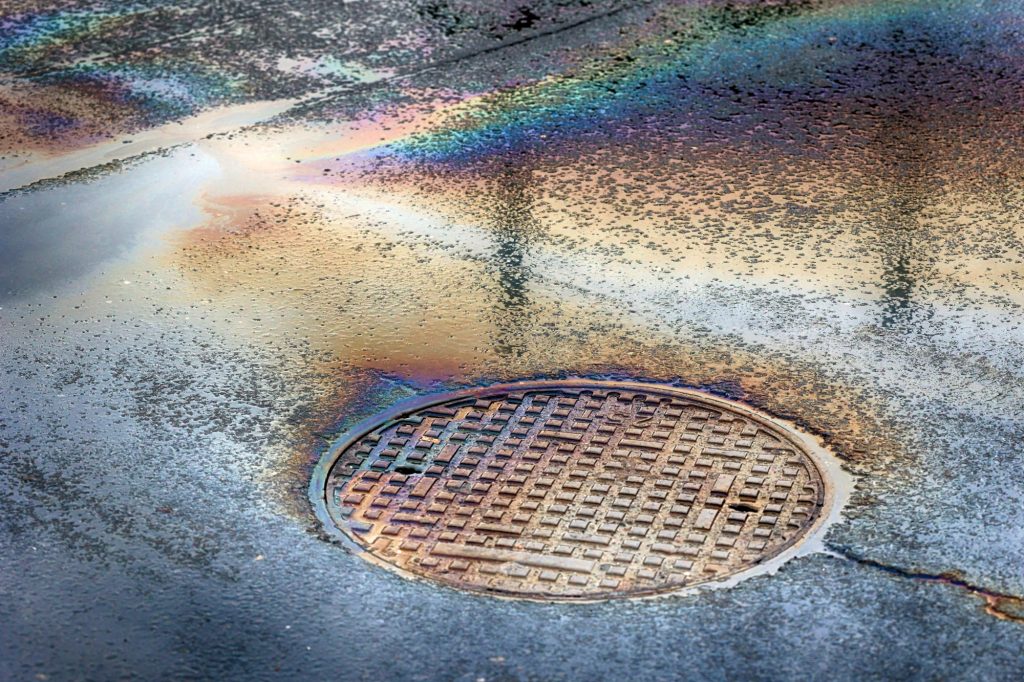Road runoff pollution causing ‘catastrophic damage’ to UK’s waterways

This post was originally published on this site

Water running off roads in the UK is carrying pollution into the country’s waterways and causing “catastrophic damage”, but the issue has “flown under the radar” according to a new whitepaper from Keyline Civils Specialist.
The civil engineering company which describes itself as “the UK’s largest supplier of specialist civils products and solutions” is part of Travis Perkins group of companies and hosted a roundtable discussion in February 2024 where it convened influential figures from industry, academia, government, and the third sector to discuss road runoff.
The discussion in February formed the basis for the whitepaper, which explores the “damaging impacts and potential solutions to this critical environmental issue”, Keyline said.
The report states that there are 1M instances in the UK where water from roads meets watercourses, known as outfalls, and 18% of water body failures in England are caused by road water runoff, as per the Water Framework Directive.
This could be worsening; NCE recently revealed that National Highways does not know when the majority of attenuation ponds collecting runoff from around the M25 were last cleaned, meaning they could be full of hazardous waste that could join watercourses.
The civils company highlighted acute and chronic pollution as a dichotomy which is not well understood.
It described acute pollution incidents as being: “After a long dry period followed by heavy rainfall, high concentrations of pollutants are pushed into the river at once; we see a particularly severe build-up in the summer months.
“The sudden influx of chemicals drives up nutrient levels, boosting algal growth – this growth consumes most of the oxygen in the water. Fish and other aquatic creatures are deprived of oxygen, in severe cases leading to death. High concentrations of toxic heavy metals can be fatal to fish.”
These incidents are often visible due to discolouration of the water due to suspended sediment, as well as algal blooms which change the colour of the water, and killed or injured wildlife.
What is less visible and harder to study is chronic pollution. Keyline said: “A chronic drip feed of pollution can lead to; the bioaccumulation of pollutants in aquatic organisms, long-term impact on ecosystem health, including altered behaviours and reproductive issues in wildlife, and cumulative effects on water quality, which may persist even during periods of low rainfall or drought.”
There is no straightforward regulatory fix because responsibilities for the roads in the UK are split between local authorities, National Highways in England, Transport Scotland, Traffic Wales, the Department for Infrastructure in Northern Ireland and private road owners.
Keyline noted in its whitepaper that discussions at its roundtable “highlighted the significance of regulatory roadblocks. Too many regulations, not enough of the right kind of regulation, a lack of enforcement; it’s an issue that many agreed to hold the key to unlocking a national roll-out of sustainable drainage systems (SuDS)”.
The whitepaper was most critical of government policy where it said no permits for road runoff related pollution had been served, despite it being a requirement of highways authorities, and it singled out National Highways and local authorities.
Keyline said: “According to the Gov.uk website, responsibility for these outfalls rests with National Highways and local authorities. Though, it is worth noting, that where drainage is discharging pollution into rivers without a permit, the Environment Agency should serve the owner of the outfall a notice requiring a permit.
“That permit would then dictate how much treatment must be delivered. Without an extensive monitoring programme, however, there is a lack of awareness of when a river exceeds published Environmental Quality Standards, so no action is taken. No permits related to road runoff pollution have been served to date.”
The Environment Agency told NCE in May 2024 that a change in the regulations and funding would be required to enable the agency to undertake a permitting-led approach and such an approach would be disproportionately resource-intensive to establish and manage.
Keyline technical director George Woollard said: “Water pollution has never held the public interest as it does now. Headlines of sewage pouring into rivers and seas, coverage of agricultural runoff and the damage it causes, the presence of microplastics in drinking water: water pollution has firmly entered the public conscience.
“But there is one significant contributor that has quietly [flown] under the radar. A ‘Cinderella issue’, operating in the background, consistently overlooked. Road runoff hasn’t attracted the same scrutiny as other sources of water pollution, but this is rightfully – necessarily – beginning to change.”
Woollard said Keyline wants to “build on the work of others, to pull back the curtain on this subject and allow some sunshine in. Building awareness of road runoff pollution, understanding the challenges we face addressing it and working together to find a solution”.
He went on to say: “Road runoff is responsible for 18% of water body failures in England. By joining forces, we can create a vehicle for change. Pressure will mount, but for our industry, there will be no scramble to address: we can take the measured, necessary steps to collaborate with others and tackle this pressing issue head-on.”
Respond to the whitepaper, HR Wallingford senior scientist Lizzie Gorton said: “At a time when water pollution has gained a lot of public interest, the significance road runoff pollution has to play has largely gone unnoticed.
“This whitepaper importantly highlights the environmental risks posed by road runoff. Solving this significant source of water pollution is crucial to river health and can only be done by working collaboratively to find effective solutions.”
The Rivers Trust said it knows pollution from road runoff is “a very serious problem” and called for a “proper monitoring regime” to be implemented.
The Rivers Trust director of policy and science Dr Rob Collins said: “Pollution from road runoff has been largely unacknowledged until recently but we now know that it is a very serious problem.
“Depending on weather conditions, rivers can suffer either from a constant drip of harmful chemicals including hydrocarbons, toxic metals and microplastics, or a sudden rush of high concentrations of pollutants when rain comes after a dry spell.
“This cocktail of chemicals can be devastating to aquatic life and can incur considerable treatment costs where it pollutes drinking water sources.
“As our towns, cities and road networks continue to grow, we must take the problem as seriously as we do sewage pollution.
“This starts with implementing a proper monitoring regime for road runoff and scaling up the use of nature-based solutions to intercept polluted water and reduce pollution levels before it reaches rivers.”
National Highways, the Department for Transport and the Department for Environment, Food and Rural Affairs were approached for comment.
Like what you’ve read? To receive New Civil Engineer’s daily and weekly newsletters click here.





Responses